Changing the Qiblah: From Sanctification of Space to Sanctification of the Lord of Space
Though Prophet Muhammad used to offer prayers while facing Jerusalem in Mecca, he would also face the Ka`bah in the same direction as Jerusalem. However, when he immigrated to Medina, he could no longer face the Ka`bah and Jerusalem at the same time, which aggravated Prophet Muhammad’s feelings of sadness, pain, and agony driven by homesickness and estrangement.
E-Da`wah Committee
تحويل القبلة والتحول من تقديس المكان إلى تقديس رب المكان
تمنى النبي صلى الله عليه وسلم التوجه إلى البيت الحرام واتخاذه قبلة تسرية له وتخفيفًا عنه ورغبة في مخالفة اليهود الذين لم يزدهم اتباعه صلى الله عليه وسلم لقبلتهم إلا استكبارا وعنادًا. فكان صلى الله عليه وسلم شديد الرغبة في إعلان استقلالية الإسلام ومخالفة اليهود من باب ردعهم وإشعارهم بضلالتهم وغيهم.
إصدارات لجنة الدعوة الإلكترونية
La coexistencia entre musulmanes y no musulmanes a la luz del Corán y la Sunnah
El mensaje final del Islam fue enviado a los habitantes de la tierra en una época en la que no se reconocía ni la justicia ni la bondad, ni los conceptos contemporáneos de libertad, pluralismo o convivencia pacífica.
E-Da’wah Committee
Tolerance in Christianity and Islam
Controversy sometimes breaks out between Christians and Muslims over which divine message is more tolerant. Some Christians argue that Christianity is more tolerant than Islam.
E-Da`wah Committee
Convietuirea dintre musulmani si nemusulmani in lumina Coranului si Sunnah
Cu adevarat mesajul final al Islamului a fost pogorat locuitorilor pamantului intr-o epoca in care nu erau recunoscute dreptatea,
E-Da`wah Committee (EDC)
Does Islam Command Attacking Churches?
It is safe to say that a given religion can be judged correctly only by two things: its own teachings and the practice of the mainstream doctrine of this religion. A religion cannot be judged by the centrifugal practices or beliefs of some followers, be they liberal or extremist, hither or thither.
E-Da`wah Committee
Hijab (Veil) between the Bible and the Qur’an
Since the desire for women is something which men cannot resist easily, God has imposed strict regulations in His successive divine messages to make sure that such a desire will play its legitimate role in the human life and will not be got out of the lawful context in which it was essentially placed, given the fact that the satisfaction of such a desire outside its legitimate framework has considerable disadvantages and enormous damage threatening man’s happiness as they ruin his life and lose him the Hereafter. One of such strict regulations is the imposition of hijab on women. That is to say, women are commanded to conceal their attractive parts whose charm cannot be resisted by men and only allowed to expose such outer parts of the body which do not cause much temptation and have such humanly reasonable adornment which is quite far away from such finery which involves deliberate display of woman’s beauty and intentional arousal of men’s desires. In this sense, hijab was made incumbent in all divine messages, including Judaism, Christianity and Islam. No wonder, the female believers in any of the divine messages used to wear hijab.
E-Da`wah Committee
Help for New Muslims on Christmas
One of the problems faced by new Muslims is the issue of different celebrations held throughout the year. Christmas is one typical example.
E-Da`wah Committee
History of Christianity and Shift from Monotheism to Trinity: Reflections and Sentiments
Controversy rages between Christians and non-Christians, including Muslims and the followers of the other faiths, and among Christians themselves over the issues of monotheism and the Trinity.
E-Da`wah Committee
Coexistence between Muslims and Non-Muslims in Light of Qur’an and Sunnah
Indeed, the final message of Islam was sent down to the inhabitants of the earth in such an era which recognized neither justice nor kindness nor the contemporary concepts of freedom, pluralism or peaceful coexistence.
E-Da`wah Committee
Lessons from the Prophet’s Hijrah
The significance of Hijrah (the migration of Prophet Muhammad, peace be upon him, to Madinah) is not limited to the Islamic history or to the Muslims. The Hijrah not only reshaped – socially and politically – the Arab Peninsula, but also had its impact on worldwide civilizations.
بين العلم والدين صدام تاريخي أم فجوة مصطنعة؟
روّج البعض لافتراض اكتسب بطول التداول قوة الحقيقة، مفاده أن الدين مادام ينطلق من غيب غير مشاهد، والعلم مادام لا ينطلق إلا من محسوس، فلا مجال لالتقاء العلم بالدين، وأنه لا علاقة بينهما
لجنة الدعوة الإلكترونية
Environment and its Elements in the Qur’an
The Glorious Qur’an is the miraculous book of God, that falsehood can by no means approach. Allah, the Almighty, said about it, “We have not neglected in the Register a thing.” (Al-An`am 6:38) It is thus important to understand how the Qur’an tackled the environment, its components and balance, and how the Qur’an discussed the issue of the protection and development of the environment.
E-Da`wah Committee
25+ Hadiths on Friday and Its Merits
Jumu`ah or Friday is so important in Islam. It is considered the best day of the week for Muslims. It is the day where the Muslims gather to offer prayer in congregation. The day of Jumu`ah is one of the blessings that the Muslim nation has been endowed with. Imam Ibn Kathir said, "It was named Jumu`ah because it is derived from the word Al-Jam` in Arabic which means to gather, as Muslims gather on this day every week, and Allah has commanded the believers to gather for His worship.
E-Da`wah Committee
Rituals & Celebrations of `Eid Al-Fitr
After the last night’s moon sighting, indicating that the blessed month of Ramadan is over, Muslims wake for the Dawn Prayer and the beginning of a very special day.
All About Zakat al-Fitr
E-Da`wah Committee (EDC) presents this ebook "All About Zakat al-Fitr" for new Muslims to learn how, when and why Zakat al-Fitr is paid. Every Muslim is required to pay Zakat al-Fitr at the conclusion of the month of Ramadan as a token of thankful¬ness to God for having enabled him to observe fasts. Its purpose is to purify those who fast from any indecent act or speech and to help the poor and needy.











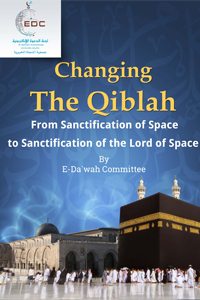
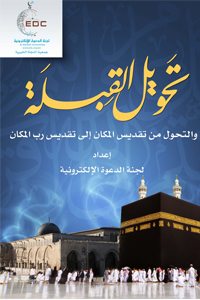

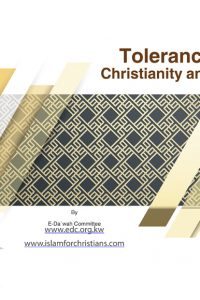

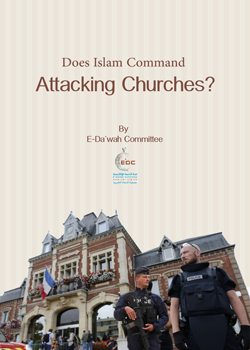
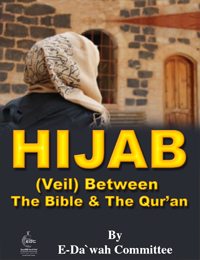

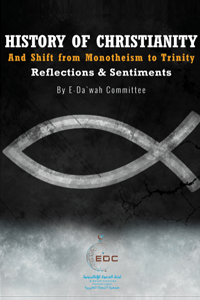
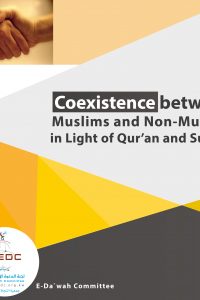
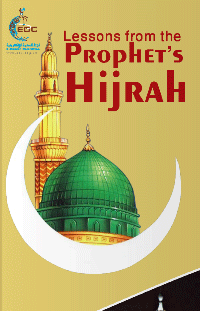
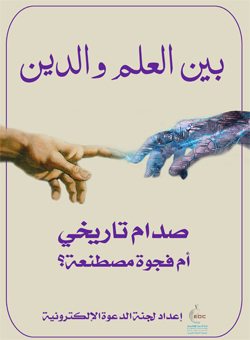
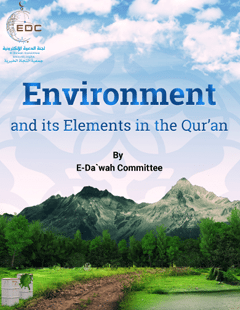



 Afar
Afar Afrikaans
Afrikaans Akan
Akan Albanian
Albanian Amharic
Amharic Armenian
Armenian Assamese
Assamese Avari
Avari Azerbaijani
Azerbaijani Basaa
Basaa Bengali
Bengali Bosnian
Bosnian Brahui
Brahui Bulgarian
Bulgarian Burmese
Burmese Catalan
Catalan Chami
Chami Chechen
Chechen Chichewa
Chichewa Circassian
Circassian Comorian
Comorian Czech
Czech Danish
Danish Dutch
Dutch Estonian
Estonian Finnish
Finnish Fulani
Fulani Georgian
Georgian Greek
Greek Gujarati
Gujarati Hausa
Hausa Hebrew
Hebrew Hungarian
Hungarian Icelandic
Icelandic Indonesian
Indonesian Ingush
Ingush Japanese
Japanese Jawla
Jawla Kannada
Kannada Kashmiri
Kashmiri Katlaniyah
Katlaniyah Kazakh
Kazakh Khmer
Khmer Kinyarwanda
Kinyarwanda Korean
Korean Kurdish
Kurdish Kyrgyz
Kyrgyz Latvian
Latvian Luganda
Luganda Macedonian
Macedonian Malagasy
Malagasy Malay
Malay Maldivian
Maldivian Maranao
Maranao Mongolian
Mongolian N'ko
N'ko Nepali
Nepali Norwegian
Norwegian Oromo
Oromo Pashto
Pashto Persian
Persian Polish
Polish Portuguese
Portuguese Romani - gypsy
Romani - gypsy Romanian
Romanian Russian
Russian Serbian
Serbian Sindhi
Sindhi Sinhalese
Sinhalese Slovak
Slovak Slovenian
Slovenian Somali
Somali Swahili
Swahili Swedish
Swedish Tagalog
Tagalog Tajik
Tajik Tamazight
Tamazight Tashamiya
Tashamiya Tatar
Tatar Thai
Thai Tigrinya
Tigrinya Turkish
Turkish Turkmen
Turkmen Ukrainian
Ukrainian Urdu
Urdu Uyghur
Uyghur Uzbek
Uzbek Vietnamese
Vietnamese Yoruba
Yoruba Zulu
Zulu